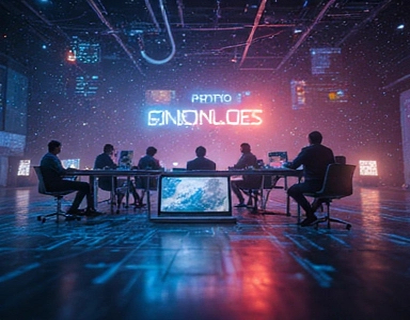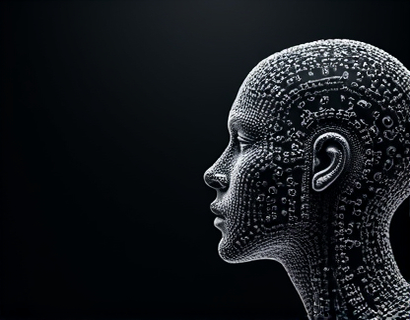Smart Contracts and Management Tools: Revolutionizing Governance for Enhanced Democracy and Participation
In recent years, the intersection of technology and governance has given rise to innovative solutions that promise to transform the way democratic processes are conducted. Among these, smart contracts and advanced management tools stand out as pivotal elements in streamlining decision-making, enhancing transparency, and boosting community engagement. This article explores the transformative potential of these technologies, focusing on how they can foster universal democracy and participatory governance, catering to individuals and organizations committed to pioneering new democratic solutions.
The concept of smart contracts, first introduced by computer scientist Nick Szabo in the early 1990s, has evolved significantly with the advent of blockchain technology. Smart contracts are self-executing contracts with the terms of the agreement directly written into code. They automatically enforce and execute the terms of a contract when predefined conditions are met, eliminating the need for intermediaries and reducing the risk of fraud or human error. In the context of governance, smart contracts can revolutionize the way laws and regulations are implemented, ensuring that rules are followed precisely and transparently.
Streamlining Decision-Making Processes
One of the most significant impacts of smart contracts in governance is the streamlining of decision-making processes. Traditional governance often involves complex and time-consuming procedures, from proposal to implementation. Smart contracts can automate these processes, making them faster and more efficient. For instance, in a municipal setting, a smart contract can be programmed to release funds for a public project once certain milestones are achieved, as verified by sensors or other data sources. This not only accelerates the process but also ensures that funds are used as intended, reducing the potential for misuse or delays.
Moreover, smart contracts can facilitate more inclusive decision-making by allowing a broader range of stakeholders to participate. In a traditional voting system, participation is often limited to scheduled elections and specific issues. With smart contracts, community members can propose and vote on a wide array of proposals in real-time, using digital platforms. This continuous engagement ensures that the voices of all community members are heard and considered, fostering a more democratic and responsive governance model.
Enhancing Transparency
Transparency is a cornerstone of democratic governance, yet it remains a challenge to achieve in practice. Smart contracts inherently promote transparency by making all transactions and agreements visible on a blockchain, a decentralized and immutable ledger. This means that every step of a governance process, from budget allocations to policy implementations, can be tracked and verified by anyone with access to the blockchain. This level of transparency builds trust among citizens, as they can see exactly how decisions are made and funds are spent.
Furthermore, smart contracts can integrate with other transparency tools, such as open data platforms and real-time reporting systems. For example, a smart contract managing a city's budget can automatically update an open data portal with the latest financial information, allowing citizens to monitor expenditures and revenues in real-time. This not only enhances accountability but also empowers citizens to hold their leaders accountable, a critical aspect of a healthy democracy.
Boosting Community Engagement
Community engagement is essential for effective governance, but traditional methods often fall short in mobilizing and sustaining citizen participation. Smart contracts and management tools offer innovative solutions to this challenge by creating interactive and user-friendly platforms for civic engagement. These platforms can host a variety of participatory mechanisms, such as digital town halls, online surveys, and proposal systems, all powered by smart contracts to ensure fairness and transparency.
For instance, a digital town hall can be set up where citizens can propose and discuss local issues, with smart contracts managing the voting process to ensure that decisions are made democratically. The use of blockchain ensures that each vote is recorded securely and cannot be tampered with, enhancing the integrity of the process. Additionally, these platforms can provide real-time feedback and updates, keeping the community informed and engaged throughout the governance cycle.
Fostering Universal Democracy
The combination of smart contracts and management tools has the potential to foster universal democracy by making governance more accessible and inclusive. Traditional democratic systems often exclude marginalized groups due to barriers such as geographic location, time constraints, or lack of information. Smart contracts and digital platforms can bridge these gaps by providing universal access to governance processes.
For example, a smart contract-based voting system can be designed to be accessible from any internet-enabled device, allowing citizens to participate in decision-making from anywhere at any time. This is particularly beneficial for remote or underserved communities, ensuring that their voices are heard. Moreover, multilingual support and user-friendly interfaces can make these platforms accessible to people with varying levels of digital literacy, further democratizing the process.
Beyond voting, these tools can also facilitate broader participation in governance. Citizens can propose and vote on a wide range of issues, from local infrastructure projects to social policies. By lowering the barriers to participation, these technologies help create a more representative and responsive government that truly reflects the will of the people.
Challenges and Considerations
While the potential of smart contracts and management tools in governance is immense, there are several challenges and considerations that must be addressed to ensure their successful implementation. One of the primary concerns is the technical infrastructure required to support these systems. Robust and secure blockchain networks are essential to prevent attacks and ensure the integrity of the data. Governments and organizations must invest in the necessary technology and expertise to build and maintain these systems.
Another critical aspect is the issue of digital divide. Despite the potential for increased accessibility, not all citizens have equal access to digital technologies. To mitigate this, it is crucial to develop strategies that ensure inclusive access, such as providing public computing facilities and digital literacy programs. Additionally, efforts should be made to educate the public about the benefits and workings of these technologies to build trust and encourage participation.
Privacy and data security are also paramount concerns. While transparency is a key feature of blockchain, it is essential to balance this with the need to protect sensitive information. Smart contracts should be designed with privacy-preserving mechanisms, such as zero-knowledge proofs, to ensure that personal data is not exposed unnecessarily. Furthermore, clear regulations and guidelines must be established to govern the use of these technologies, ensuring they are used ethically and responsibly.
Case Studies and Real-World Applications
Several real-world examples demonstrate the practical applications and benefits of smart contracts and management tools in governance. One notable example is the city of Zug in Switzerland, often referred to as the "Crypto Valley," which has implemented a blockchain-based identity management system. This system uses smart contracts to verify and manage digital identities, streamlining processes for both residents and businesses. The city has seen improved efficiency and security in its governance operations, serving as a model for other municipalities.
Another example is the use of smart contracts in the management of public funds in Estonia, a country at the forefront of digital governance. Estonia's e-Government system utilizes blockchain to ensure transparent and secure handling of financial transactions and public contracts. This has not only enhanced transparency but also reduced the risk of corruption and mismanagement.
In the realm of community engagement, the city of Toronto has piloted a digital platform for citizen proposals and voting on local issues. While not fully based on smart contracts, the platform uses digital tools to enhance participation and transparency. The success of this initiative highlights the potential of combining digital technologies with participatory governance models.
Future Prospects
As technology continues to evolve, the potential applications of smart contracts and management tools in governance are vast. One exciting frontier is the integration of artificial intelligence (AI) with blockchain to create smarter, more adaptive governance systems. AI can analyze vast amounts of data to identify trends and insights, which can then be used to inform policy decisions and improve governance outcomes. Smart contracts can automate the implementation of AI-driven recommendations, creating a seamless and efficient governance cycle.
Another area of development is the creation of decentralized autonomous organizations (DAOs) for governance. DAOs are community-driven entities governed by smart contracts, allowing for decentralized decision-making and resource management. This model can be particularly useful for non-profit organizations and community groups, providing a transparent and democratic way to manage resources and make decisions.
Looking ahead, the key to realizing the full potential of smart contracts and management tools in governance lies in collaboration between technologists, policymakers, and the community. By working together, these stakeholders can develop solutions that are not only technologically advanced but also aligned with the needs and values of society. This collaborative approach ensures that the benefits of these technologies are widely shared, contributing to a more equitable and participatory democracy.
In conclusion, smart contracts and management tools are poised to revolutionize governance by streamlining decision-making, enhancing transparency, and boosting community engagement. These technologies offer a pathway to universal democracy, making governance more accessible and inclusive for all. As we continue to explore and implement these innovations, the future of democratic participation looks brighter and more promising than ever.











































